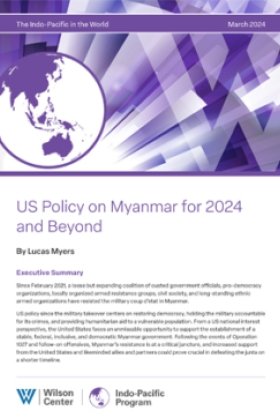Morocco in Transition: The Arab Spring Lives On
Ahmed Herzenni, a member of the commission that drafted the new Moroccan constitutional amendments, discussed the document, focusing on the political and social climate that led to its writing and the main changes it proposes.
Overview
Ahmed Herzenni, a member of the commission that drafted the new Moroccan constitutional amendments, discussed the document, focusing on the political and social climate that led to its writing and the main changes it proposes.
On June 27, the Middle East Program of the Woodrow Wilson Center hosted a discussion, "Morocco in Transition: The Arab Spring Lives On," with Herzenni, President of the Advisory Council on Human Rights (CCHR) in the Kingdom of Morocco. Haleh Esfandiari, Director of the Middle East Program at the Wilson Center, moderated the event.
Herzenni prefaced his discussion of the proposed Moroccan constitution by providing background on reform and politics in the history of the kingdom. He said that Morocco has had a "long period of conflicts" dealing with violations of human rights, the autonomy of Western Sahara, economic struggles, and other issues. Herzenni emphasized the efforts of the monarchy to begin democratization and to address such issues over the past two decades. He pointed out three main drives for progress: reconciliation with victims of repression and human rights abuses, the recognition of Morocco's Amazigh population and culture, and reforms to the Family Code.
Such a history of progress, Herzenni argued, has made it easier for Morocco to move toward reform today. However, Herzenni opined that the Arab Spring was pivotal in opening up the necessary "social dialogue." Although there had been talk of constitutional reform in Morocco for the past few years, the spirit of the Arab Spring encouraged "proactiveness" among political parties and activists. As Herzenni noted, the demands of the February 20 youth movement motivated the government to stop postponing reforms: once King Mohammed VI decided on March 9 to have a new constitution drafted, it took only three months for the royal-appointed members of the constitutional commission to write it.
Discussing the draft of the constitution itself – which will only become official if it passes a referendum vote on July 1 – Herzenni emphasized that it presented achievements, not major "breakthroughs." He did, however, outline what he saw as the nine "main gains" proposed in the draft. The first of these is the official recognition of Morocco's mixed cultural heritage, with reference to Amazigh, African, Andalusian, and Jewish influences. Secondly, it expresses a commitment to democracy, which is an "irreversible" step forward. Human rights, which receive a brief, general mention in the current constitution, are now explicitly listed; the constitutional draft furthermore recognizes the primacy of international law regarding human rights in Moroccan institutions.
The proposed constitution also dictates parity between men and women. Herzenni regarded this as not "implementable overnight," but a step in right direction, enabling further social efforts. In addition, the draft establishes a secularized legal system and limits the king's exclusively-held powers to leading Morocco's military and religious institutions. Herzenni did note that the king would still retain significant political sway in matters of government. Among other changes, Herzenni discussed the independence of the judiciary from other branches of government, the decentralization of systems for resource allocation, and the encouragement of government transparency to oppose corruption.
By Laura Rostad, Middle East Program
Speaker
Ahmed Herzenni
Hosted By

Middle East Program
The Wilson Center’s Middle East Program serves as a crucial resource for the policymaking community and beyond, providing analyses and research that helps inform US foreign policymaking, stimulates public debate, and expands knowledge about issues in the wider Middle East and North Africa (MENA) region. Read more
Thank you for your interest in this event. Please send any feedback or questions to our Events staff.









